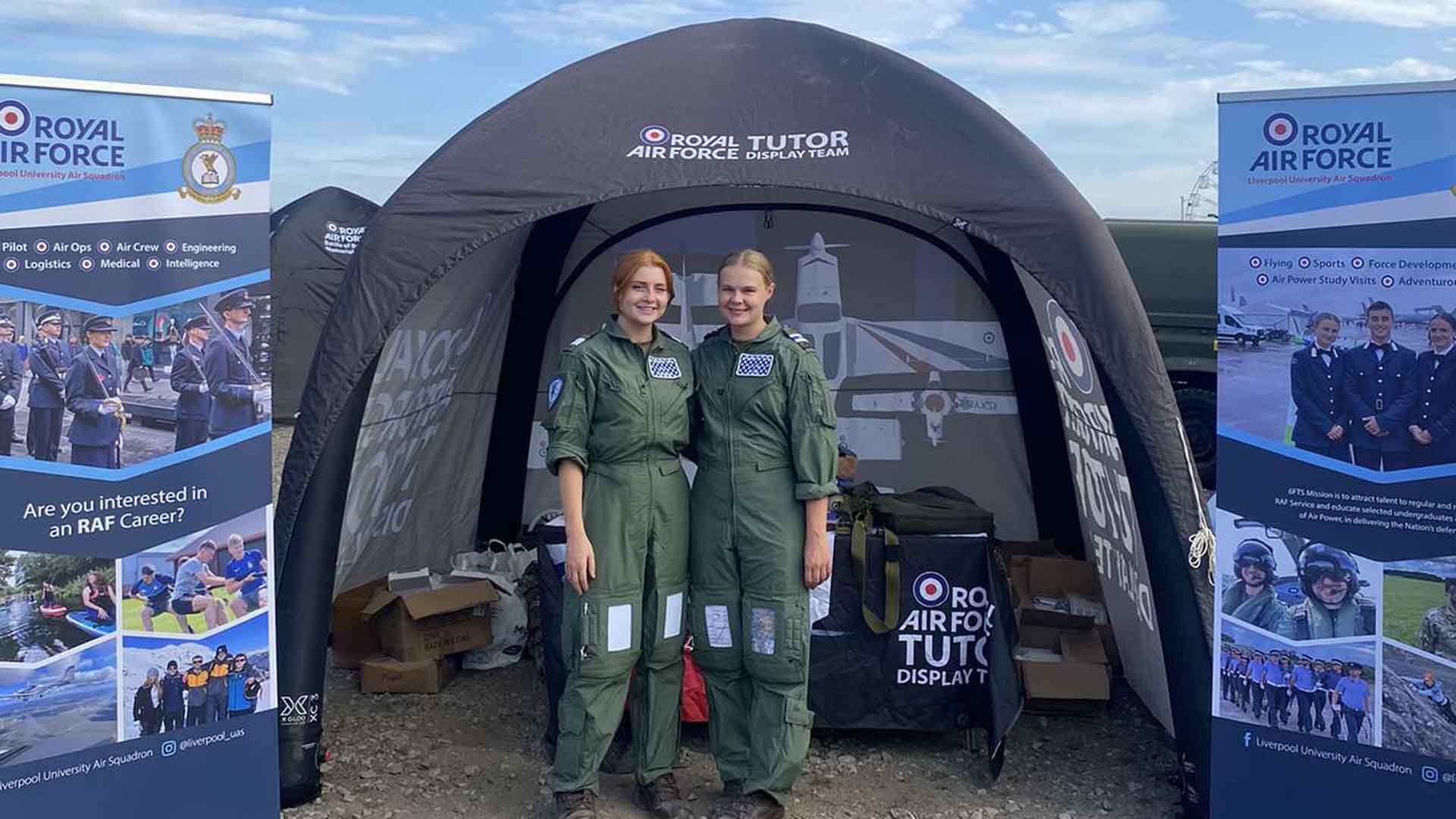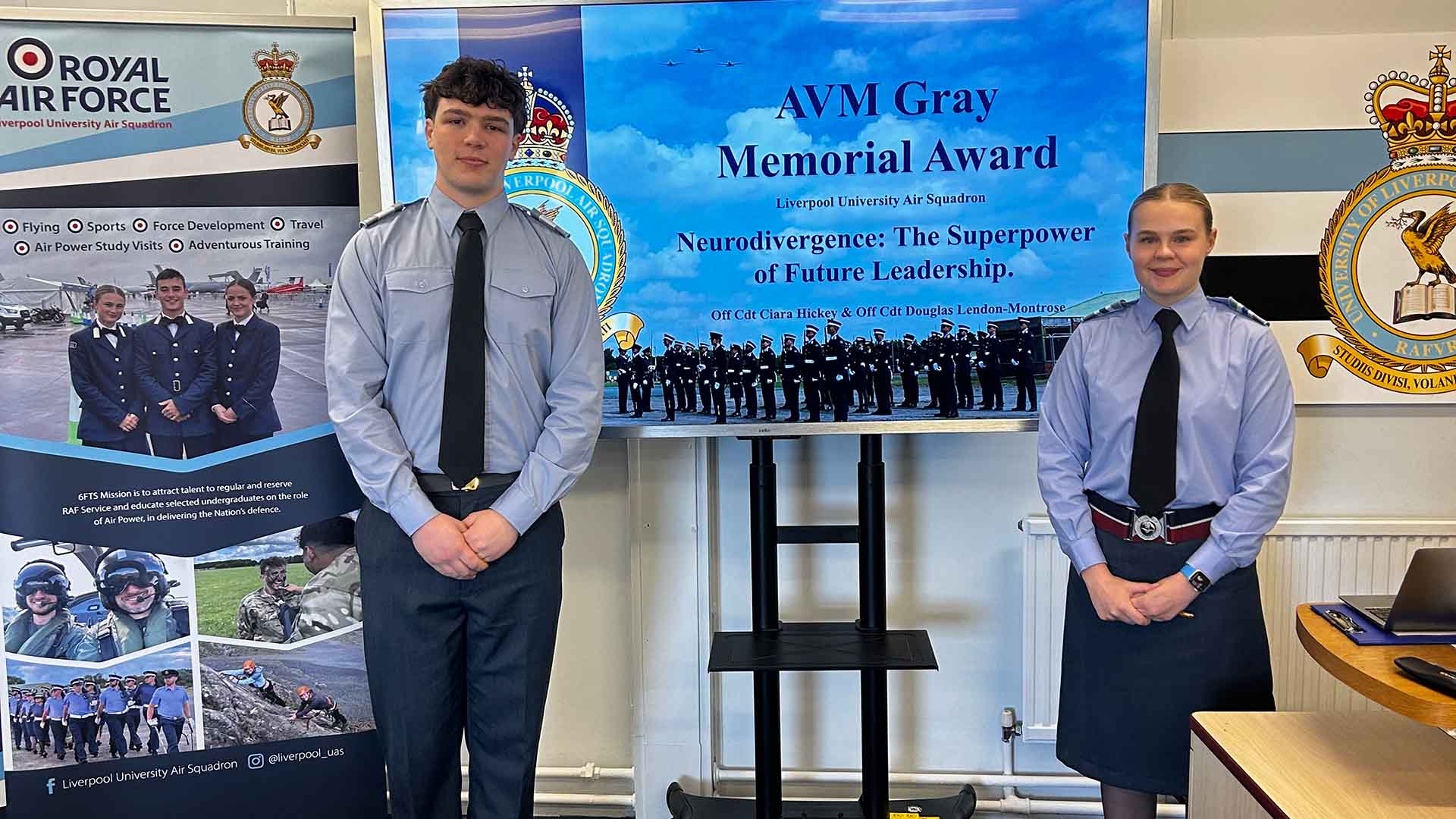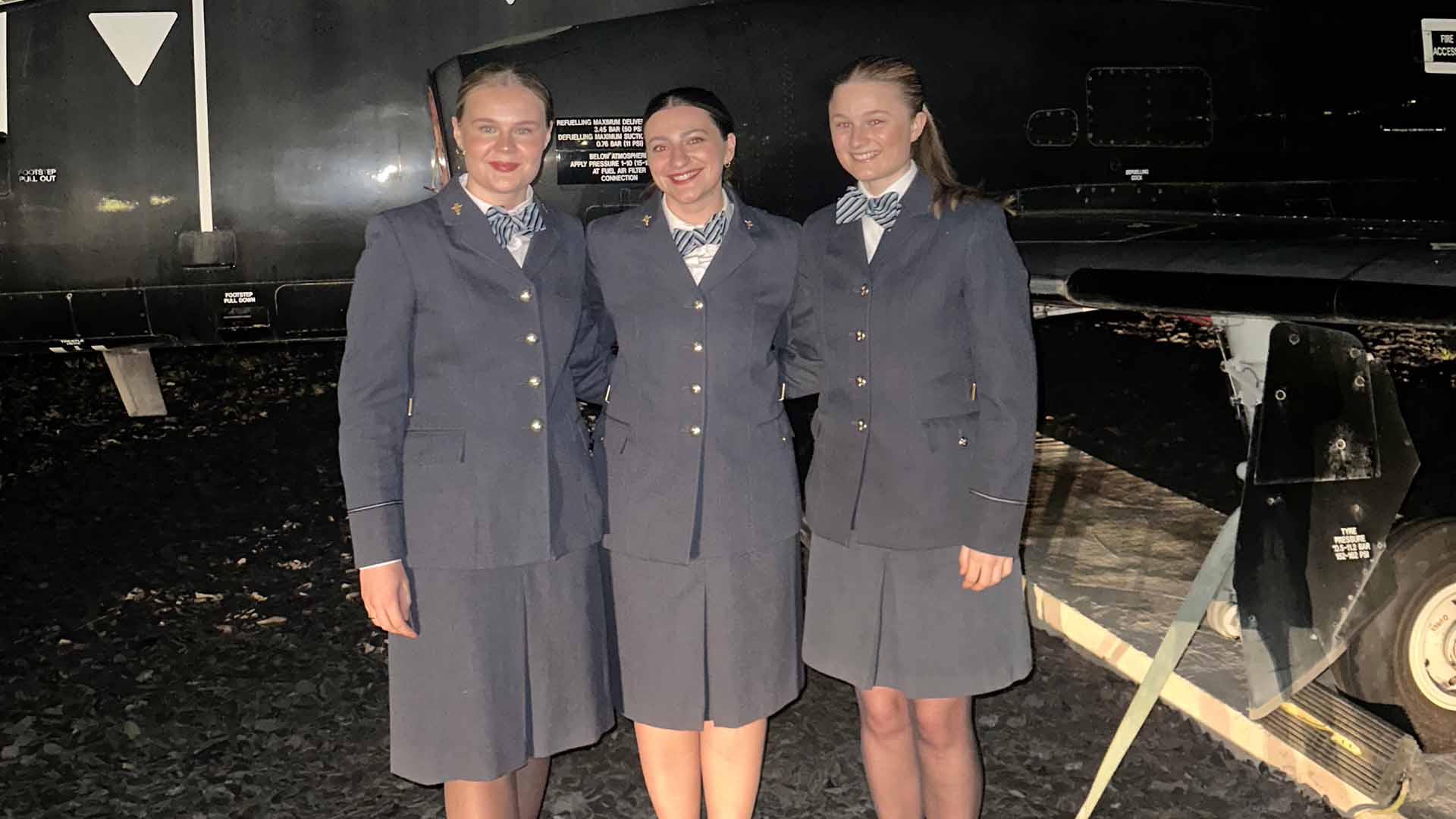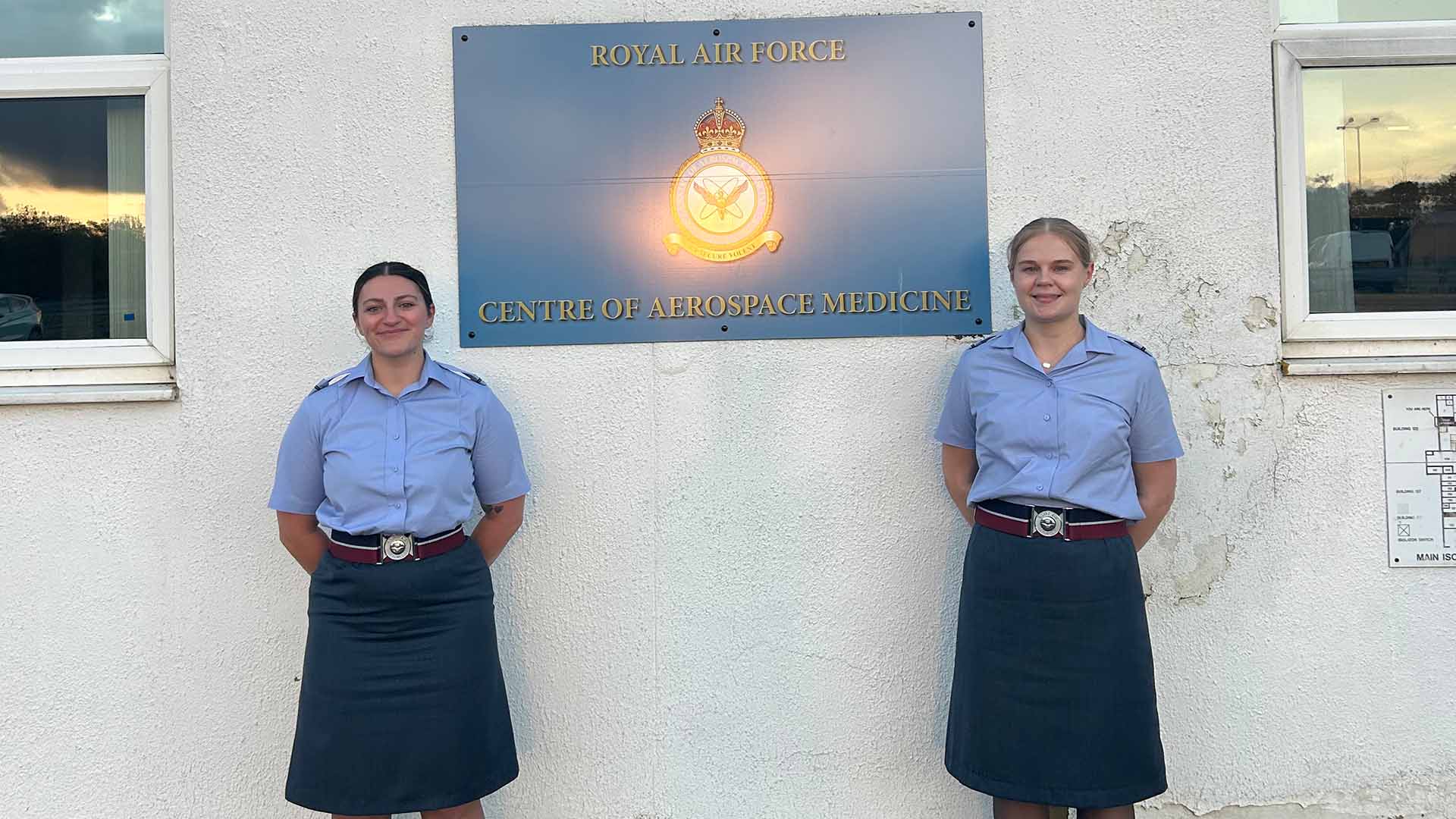
During her time on the MBChB here at Liverpool, Year 5 Student Doctor Ciara Hickey has reaped great benefits from both the wide range of placements she has experienced across trusts in the city region and an equally exciting cadetship with the Royal Air Force – opening up opportunities to get a taste of what life is like for a medical officer in the RAF.
Hi, I’m Ciara Hickey. I’m in my final year of Medicine and I’m from Blackburn. The main thing that made me want to apply to Liverpool was the variety of specialist and tertiary care centres. I’ve been lucky enough to spend time in many of them during placements, and I’m really grateful for the opportunities I’ve had here.
One of my proudest moments was being awarded a medical sponsorship at the end of my second year. A friend of my dad, who is a Medical Officer in the RAF, told me about the sponsorship and said it was a great opportunity worth looking into. I applied, went through interviews and OASC (Officer and Aircrew Selection Centre), and was really lucky to be accepted.
The idea of joining the military can feel quite daunting, especially if you don’t come from a military background. It’s hard to imagine what life as a doctor in the RAF is like. That’s where Liverpool University Air Squadron (LUAS) was really helpful. We had the chance to visit RAF bases, meet doctors serving in the RAF, and take part in adventure training like skiing, hill walking and climbing. It gave me a much clearer picture of what military life might be like and I made lots of new friends who were also interested in joining.

The application process has changed a little since I applied. It now starts with a virtual interview, then OASC, and finally a selection board where applicants from across the country are considered.
If you apply in your second year, you’re awarded a £3,000 bursary for your third year alongside the cadetship for your final two years. If you apply in your third or fourth year, you can receive the medical cadetship, which covers your tuition fees and gives you a monthly salary to help with living costs.
Unlocking exciting opportunities
As Medical Cadets, we go to the Centre of Aviation Medicine for an annual Symposium. There are always interesting talks on new research and the opportunities available to us in the future, such as the Diploma in Aviation Medicine at King’s College London or the Diploma in Tropical Medicine at the Liverpool School of Tropical Medicine.
Through the UAS, I also had the chance to learn to fly the Grob Tutor. Many doctors in Aviation Medicine say the best way to understand the field is to experience flying yourself.
Some of my peers have also spent time with the Air Ambulance, taken part in military training exercises as casualties and worked as first aiders at Air Shows.

Looking beyond graduation
Our application system is slightly different, as we apply to the defence deaneries for our Foundation Years, but otherwise it’s very similar to the NHS process. After that we do our GDMO (General Duties Medical Officer) year, which includes working as a doctor on an RAF base and completing Specialist Officer Initial Training. We also do courses in Aviation Medicine during this time. After that, we move on to speciality training.
My advice
I’d say don’t worry if you don’t know everything about the military or if you’re not 100% certain it’s what you want to do. Join the UAS if you can, as it will give you a much better idea of what life in the RAF is like. And definitely apply, they’re looking for potential, not the finished product.

Thanks for sharing Ciara! Head to RAF - Medical Sponsorship to learn more about this particular opportunity, and to Financial Support on the student for other sources of funding to support your studies.